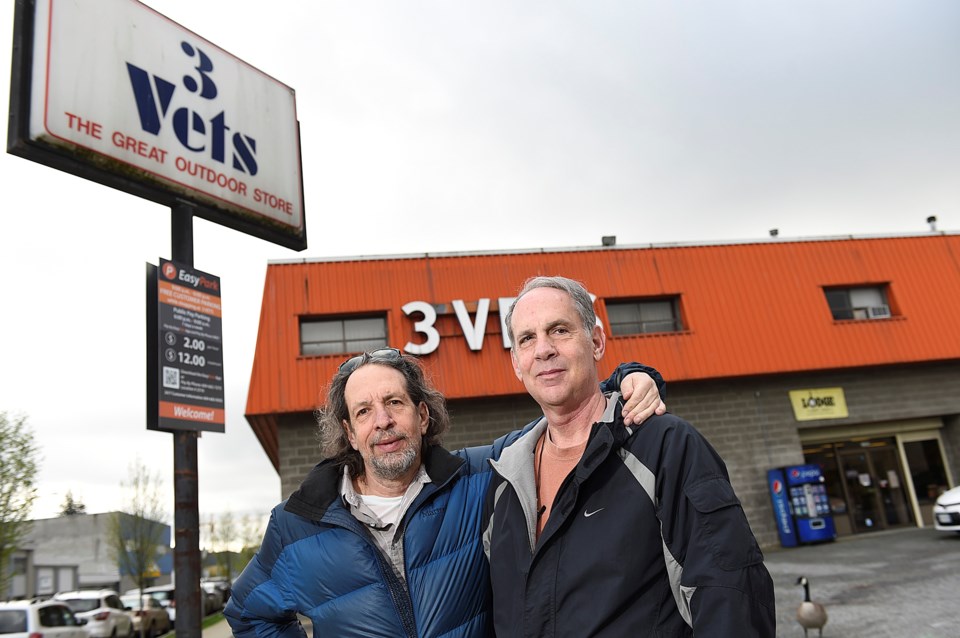Vancouver’s commercial, industrial and strata properties continue to soar in value to the point of massive, double-digit increases, according to numbers released Tuesday by the B.C. Assessment Authority.
Commercial and industrial properties in particular could see the most dramatic changes in their 2018 assessment, with numbers fluctuating as high as 45 to 50 per cent more than the 2017 numbers.
Last year’s report also pointed to changes as high as 40 per cent in the commercial and industrial sectors. At that time, assessors noted “commercial properties being purchased for eventual redevelopment will often exceed these ranges.”
Not much has changed on that front over the last 12 months.
“They were a strong product last year and there continues to be a strong market value for those properties this year again,” said Paul Borgo, acting assessor for the Greater Vancouver Region.
This year’s assessments also point to the potential for big changes in the strata/condo market, with increases expected in the five to 35 per cent range. Single-family homes, meanwhile, will see assessments fluctuate between minus five and 15 per cent.
The numbers contained in the report reflect assessed values as of July 1, 2017 and examples provided by the assessment authority point to individual cases, rather than city-wide changes.
The most movement expected in the residential sector will be seen on Vancouver’s East Side, where the assessed value of a strata/high rise built in 2003 could be 15 per cent more than in 2017 — a jump from $486,000 to $557,000.
A similar property type on the West Side built in 2002 could see a 10 per cent increase. Assessments on single-family properties with standard 33-foot lots — built on the East Side in 1946 or on the West Side in 1928, as examples — will see average jumps of one to two per cent.
“It seems that the market is calmer with single family homes,” Borgo said. “That market for single family is quite stable with minor decreases to reasonable increases compared to last year.”
Property assessments are based on a number of factors: property size, age, quality, view and location. Changes in assessment can vary wildly from property to property, but that’s not to suggest a sudden shift in those values automatically translates to a property tax hike — taxes are typically more affected by how assessments change when compared with average changes in a given community.
“In real terms, if your change in assessed value was above the average for that class of property in your community, you’re likely going to see some form of a tax increase,” Borgo said. “But if it was below the average, you’re likely not going to see that.”
The dramatic shifts seen in the commercial and light industrial sectors were highlighted in several stories in the Courier in 2017. Suna Studios owner Rob Stewart told the Courier in August that industrial square footage tripled in price between 2014 and 2015. He attributed that spike, at least in part, to the proliferation of tech start-ups and craft breweries moving into the city.
When the popular outdoor store 3 Vets closed, co-owner Jerry Wolfman said his property tax bill this year was about $90,000 and roughly $70,000 in 2016. City of Vancouver and B.C. Assessment data notes the property at Yukon and Sixth Avenue was assessed at roughly $12 million in 2017.
Business in Vancouver reported in mid-December that Metro Vancouver has Canada’s second-lowest industrial vacancy rate (behind Toronto), at 1.7 per cent. Industrial lease rates increased 12 per cent over 2016 numbers, the highest increase in three decades, to an average of just under $10 per square foot. Vancouver industrial strata prices are hitting $700 per square foot.
On the commercial property front, Vancouver’s downtown office vacancy rate plunged 50 per cent in 2017 to five per cent, the lowest since 2013. It’s expected to remain at that level for the next three to four years. The demand has moved up the launch for new office towers, but the earliest won’t open for at least two years. Strata prices and lease rates are expected to top all-time highs in 2018, according to the Business in Vancouver report.
Those wanting to appeal their assessment must do so by Jan. 31. Assessment authority stats suggest one to two per cent of property owners go that route annually. A review panel hears those appeals between Feb. 1 and March 15 and decisions are then mailed out in April.
— with files from Business in Vancouver



